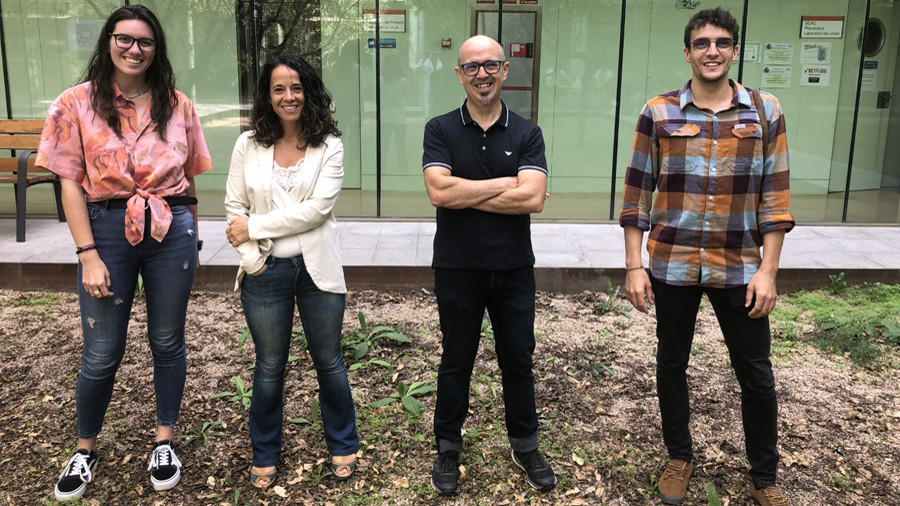An IBB project led by Salvador Ventura has been one of six selected by the Multiple System Atrophy Coalition in its research grant programme. The grant will allow researchers to advance in the study of molecules they have identified as being potential candidates for a treatment of multiple system atrophy. This neurodegenerative disease affects more than 30,000 people in Europe.
The Protein Folding and Conformational Diseases research group at the Institute of Biotechnology and Biomedicine (IBB), led by Salvador Ventura, professor of the Department of Biochemistry and Molecular Biology, has won one of the grants awarded annually by the Multiple System Atrophy Coalition, a prestigious international non-profit organisation that aims to improve the quality of life of people with multiple system atrophy (MSA), which affects more than 30,000 people in Europe alone.

Els investigadors de l’IBB que duran a terme el projecte reconegut per l’MSA Coalition. D’esquerra a dreta: Andrea Bartolomé, Irantzu Pallarés, Salvador Ventura i Jordi Pujols
MSA is a rapidly progressive and highly disabling disease that belongs to the group of synucleinopathies (which also includes Parkinson’s disease). It is caused by the accumulation in the brain of a protein, alpha-synuclein, which forms toxic aggregates due to poor folding, leading to glial and neuronal dysfunction and neurodegeneration.
The IBB researchers’ project, entitled “Optimization of a small molecule to inhibit alpha-synuclein aggregation in MSA”, has been awarded a budget of €50,000. This will allow researchers to evaluate the anti-aggregation, neuroprotective activity and pharmacokinetic properties of some thirty second-generation molecules identified in previous studies and which have high theoretical permeability to the blood-brain barrier and anti-aggregation activity. The molecules will be evaluated in vitro and the most active compounds will be studied in two C. Elegans models of the disease. In a second phase of the project, which can be renewed for another year, the researchers will test the two best molecules in mouse models of MSA. This second part of the project has also been awarded a Proof of Concept grant from the UAB and will be carried out in collaboration with Professor Wassilios Meissner, director of the Institute of Neurodegenerative Diseases at the University of Bordeaux. “So far, no treatment has been discovered that can modify the course of MSA and current drugs provide only partial relief. It is therefore urgent to develop treatments to slow its progression,” explains Salvador Ventura. The researcher says his team’s ultimate goal is to validate a molecule with optimal drug-like properties and the ability to reduce alpha-synuclein aggregation and neuronal loss in mice, in order to generate the preclinical basis for a future therapy.
